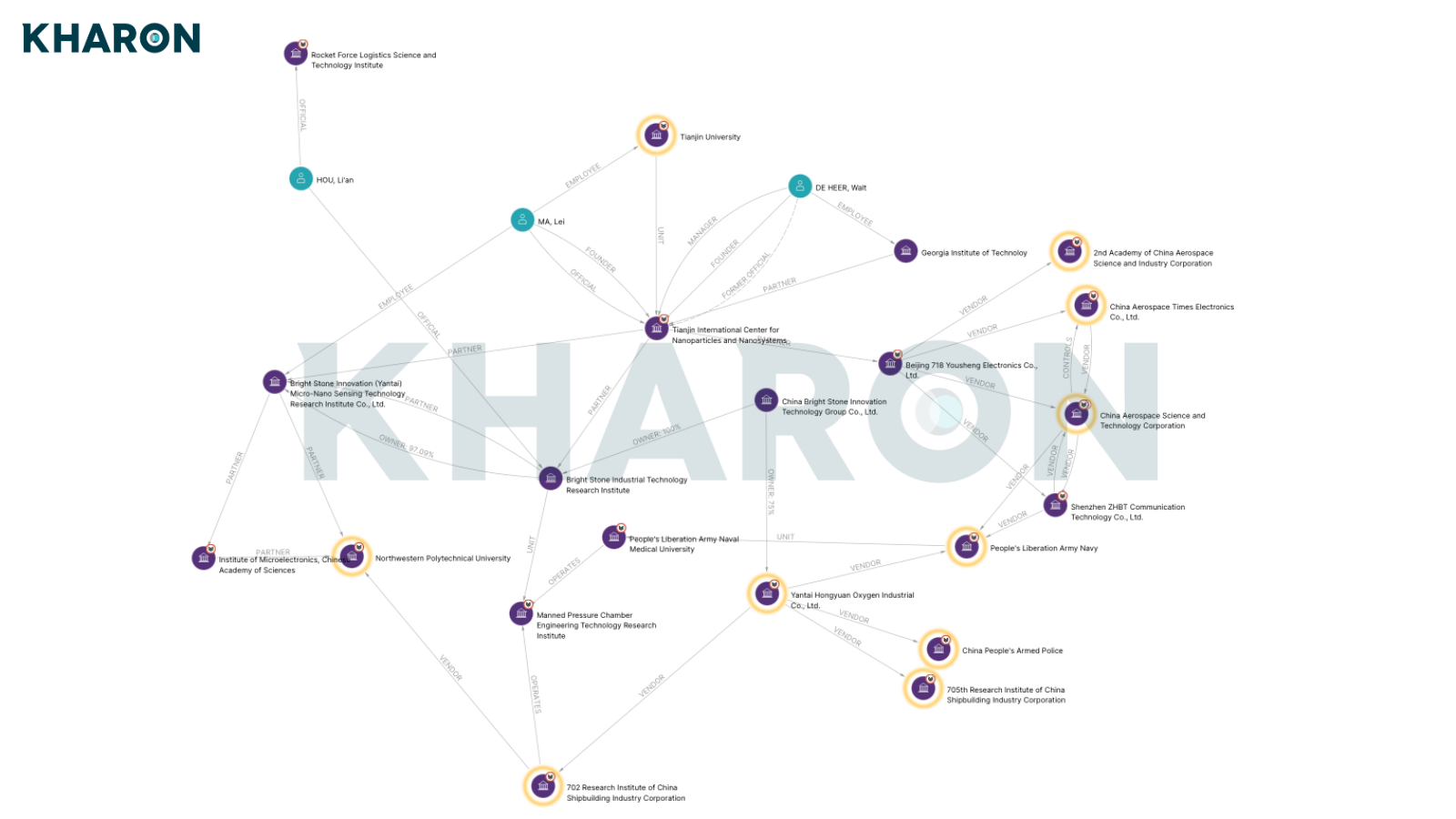Republican lawmakers sent an inquiry earlier this month to gain more information on the relationship between Georgia Tech and a research center under a Chinese university with ties to the People's Liberation Army (PLA).
In a May 9 letter addressed to the President of Georgia Tech, the lawmakers asked the university to provide details regarding its relationship with Tianjin University’s International Research Center for Nanoparticles and Nanosystems (TICNN), including details about funding, collaborations, and research partnerships.
The focus of the inquiry was specifically looking at Georgia Tech’s “use of its U.S. Department of Defense-affiliated institute to fund sensitive research with military applications conducted with Tianjin University.”
Tianjin University was added to the U.S. Department of Commerce’s Entity List in 2020 for stealing trade secrets from U.S. companies related to technology with military applications. The university was one of more than 100 foreign research institutions added in January to a Canadian government list for posing a national security risk.
“Despite Tianjin University’s links to the PLA and its efforts to steal dual-use U.S. trade secrets, Georgia Tech has continued collaborating with [Tianjin University] as it has done since at least 2013,” the lawmakers said in the letter.
In January, Georgia Tech announced that it had created the world's first functional semiconductor made from graphene in collaboration with TICNN. The lawmakers described the technology as having “significant military applications.”
Graphene semiconductors are a high-performance alternative to silicon that could power future electronic devices, including high-tech military electronics.
According to an article published in January by Nature, a scientific journal, TICNN has a laboratory that coordinates with Georgia Tech to study epigraphene – a layer of graphene that can be grown on top of silicon carbide, a semiconductor material used in high-power electronics.
In addition to its partnership with Georgia Tech, TICNN has also collaborated with Beijing 718 Yousheng Electronics Co., Ltd. The two entities established a joint laboratory in 2019.
718 Yousheng Electronics is a components maker that primarily caters to the Chinese military industry. Its customers include sanctioned Chinese aerospace companies that supply military equipment to the PLA.
TICNN has also partnered with Bright Stone Industrial Technology Research Institute, and the two established a joint lab that conducts research on graphene materials.
Bright Stone has several ties to the Chinese military. One of its sister companies, Yantai Hongyuan Oxygen Industrial Co., Ltd., develops and supplies military equipment to the Chinese navy and armed police. Bright Stone also established another joint lab, the Manned Pressure Chamber Engineering Technology Research Institute, with a Chinese naval shipbuilding research institute and the Naval Medical University, a public medical university affiliated with the PLA.
Furthermore, one of Bright Stone’s academicians, Hou Li’an, is the director of the PLA Rocket Force Logistics Science and Technology Institute.
A Georgia Tech spokesperson said it welcomed the congressional inquiry, but noted that the university “does not have a collaboration, research partnerships, or provide any funding to Tianjin University," Reuters reported.
The lawmakers’ inquiry comes as the U.S. and other governments continue to monitor and crack down on intellectual property theft and security risks associated with foreign academic and research partnerships.
In a May 9 letter addressed to the President of Georgia Tech, the lawmakers asked the university to provide details regarding its relationship with Tianjin University’s International Research Center for Nanoparticles and Nanosystems (TICNN), including details about funding, collaborations, and research partnerships.
The focus of the inquiry was specifically looking at Georgia Tech’s “use of its U.S. Department of Defense-affiliated institute to fund sensitive research with military applications conducted with Tianjin University.”
Tianjin University was added to the U.S. Department of Commerce’s Entity List in 2020 for stealing trade secrets from U.S. companies related to technology with military applications. The university was one of more than 100 foreign research institutions added in January to a Canadian government list for posing a national security risk.
“Despite Tianjin University’s links to the PLA and its efforts to steal dual-use U.S. trade secrets, Georgia Tech has continued collaborating with [Tianjin University] as it has done since at least 2013,” the lawmakers said in the letter.
In January, Georgia Tech announced that it had created the world's first functional semiconductor made from graphene in collaboration with TICNN. The lawmakers described the technology as having “significant military applications.”
Graphene semiconductors are a high-performance alternative to silicon that could power future electronic devices, including high-tech military electronics.
According to an article published in January by Nature, a scientific journal, TICNN has a laboratory that coordinates with Georgia Tech to study epigraphene – a layer of graphene that can be grown on top of silicon carbide, a semiconductor material used in high-power electronics.
In addition to its partnership with Georgia Tech, TICNN has also collaborated with Beijing 718 Yousheng Electronics Co., Ltd. The two entities established a joint laboratory in 2019.
718 Yousheng Electronics is a components maker that primarily caters to the Chinese military industry. Its customers include sanctioned Chinese aerospace companies that supply military equipment to the PLA.
TICNN has also partnered with Bright Stone Industrial Technology Research Institute, and the two established a joint lab that conducts research on graphene materials.
Bright Stone has several ties to the Chinese military. One of its sister companies, Yantai Hongyuan Oxygen Industrial Co., Ltd., develops and supplies military equipment to the Chinese navy and armed police. Bright Stone also established another joint lab, the Manned Pressure Chamber Engineering Technology Research Institute, with a Chinese naval shipbuilding research institute and the Naval Medical University, a public medical university affiliated with the PLA.
Furthermore, one of Bright Stone’s academicians, Hou Li’an, is the director of the PLA Rocket Force Logistics Science and Technology Institute.
A Georgia Tech spokesperson said it welcomed the congressional inquiry, but noted that the university “does not have a collaboration, research partnerships, or provide any funding to Tianjin University," Reuters reported.
The lawmakers’ inquiry comes as the U.S. and other governments continue to monitor and crack down on intellectual property theft and security risks associated with foreign academic and research partnerships.

Kharon users can further explore TICNN’s network in the ClearView portal. Click here to access.







